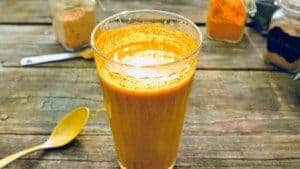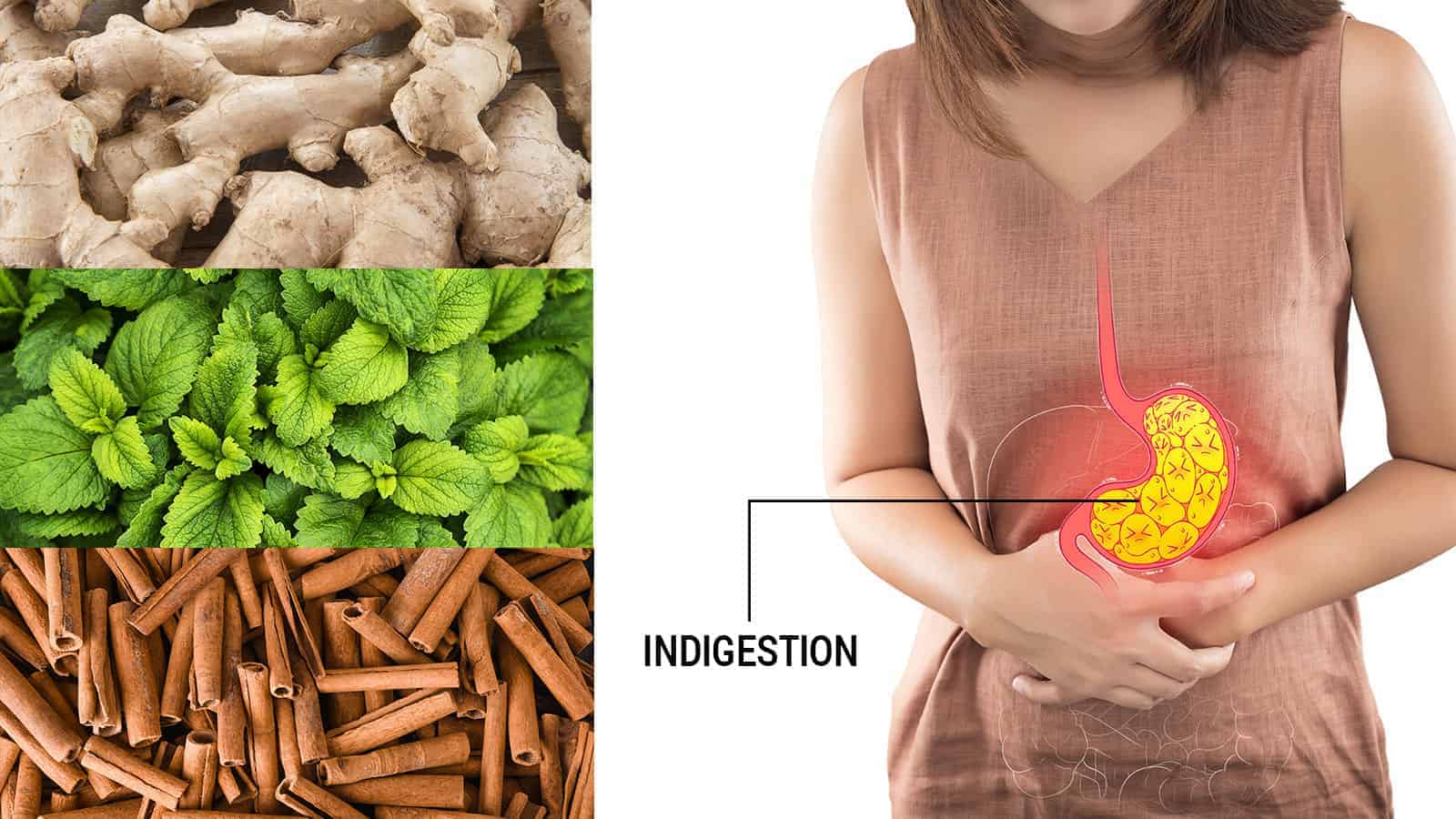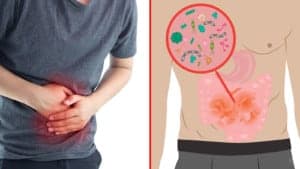Indigestion is a common complaint of many Americans today.
Thanks to our fast-paced lifestyle and Standard American Diet, or S.A.D., almost 1 in 4 Americans have digestive issues related to indigestion. Symptoms of indigestion can manifest in many ways, ranging from mild heartburn to a persistent stomachache that never subsides.
Overview of Indigestion
Indigestion is a blanket term used to describe a general feeling of discomfort and pain in the upper abdominal area. It is not a disease, but rather a collection of symptoms that cause pain and feeling of extreme fullness that you experience immediately after eating. Although this condition is common, the way that people experience their symptoms varies greatly from person to person.
This condition can be an indicator of a more severe digestive disorder, so symptoms should not be taken lightly.
Symptoms of Indigestion
People with this condition may experience one or more of the following symptoms:
1. Feeling full during a meal.
You may begin to feel uncomfortably full, even if you haven’t finished a meal. This feeling of fullness can last for hours after eating.
2. Discomfort that lasts long after a meal.
Even if you are not eating a full meal, your feeling discomfort and extreme fullness can last long after your stomach is empty.
3. Pain in the upper abdomen.
You sometimes feel mild to severe pain in your upper abdominal cavity between the bottom of your breastbone and your navel.
4. Burning in the upper abdomen.
There are times when a burning sensation accompanies other aspects of discomfort. Much of this occurs in the upper abdomen just below the ribs.
5. Bloating
Due to a buildup of excess gas, you may experience bloating and constipation that can be quite painful.
6. Nausea.
You might feel a pervasive feeling as though you want to vomit. The feeling may be present both before and after eating.
Frequent periods of heartburn and an ongoing stomachache accompany this condition, making it difficult to want to eat well. As a result, your nutrition needs are also compromised, which can lead to other complications over time.
Should I see a doctor?
Mild, intermittent symptoms are not anything to worry about, and it can be tackled with some simple home remedies that we will cover later in this article. You should be concerned about your symptoms and make an appointment to see a doctor if you experience the following:
- Weight loss, loss of appetite
- Repeated vomiting, vomiting up blood
- Black and tarry stool
- Trouble swallowing that is getting worse over time
- Fatigue or weakness, indicative of anemia
- Shortness of breath, pain in the throat
- Chest pain on exertion or with stress
Causes of indigestion
There are many probable causes for any kind of stomach discomfort. Many issues can be attributed to diet and lifestyle choices; simply by cleaning up your diet and eliminating stress, you are able to alleviate much discomfort.
Most often, stomach upset can be attributed to the following:
- Overeating; eating too quickly
- An overabundance of fatty or greasy foods
- Too much alcohol, caffeine, or carbonated drinks
- Smoking
- Anxiety
- Certain medication
Sometimes, this condition is an indication that more serious complications are developing, such as:
- Gastritis; inflammation of the stomach
- Peptic ulcers
- Celiac disease
- Gallstones
- Constipation
- Pancreatitis
- Stomach cancers
- Intestinal blockages
- Reduced blood flow to the intestines
Being in this type of discomfort can significantly impact your quality of life; while many people look to prescription drugs and conventional medical treatments to help reduce symptoms and alleviate this condition, others wish to tackle the problem using natural remedies. There are a number of effective, natural remedies that are used to treat stomach upset and digestive issues that procure many loyal followers. The following natural remedies are presented to you for review as you, too, search for answers to the pervasive problem of heartburn and stomachache.
 Try some of these tips for stomach healing and digestive ease once more:
Try some of these tips for stomach healing and digestive ease once more:
1. Drink more water
We are chronically dehydrated, and few of us drink enough water to keep things in our bodies flowing smoothly. We need a minimum of three liters daily to keep tissues lubricated, blood circulating efficiently, and all systems of the body in good working order. Replace some of your daily beverages with a glass of fresh, clean water, and you’ll be on track for better digestive health.
2. Avoid lying down for extended periods of time
When you are lying down or reclining, your stomach acid is able to travel back up into your esophagus and cause issues with the lining of your mouth, throat, and nose. This traveling acid is known as heartburn, a common complaint of those who suffer from indigestion. If you must lie down, prop up your head, neck, and upper back to a 30-degree angle and drink plenty of water to help neutralize stomach acid.
3. Eat or chew on ginger
Ginger is a very effective remedy for those suffering from an upset stomach. Ginger itself contains compounds called shoagols and gingerols that help to promote stomach contractions needed for proper digestion. In addition, chemical compounds in ginger help to reduce nausea, vomiting, and diarrhea. Start small if you are using fresh ginger, as the taste and the spiciness can be overpowering, and work up to larger quantities. Adding it to foods and sauces is great for promoting healthy digestion too.
4. Drink apple cider vinegar
Sounds gross, doesn’t it? Apple cider vinegar claims include everything from improved skin and hair to digestion to weight loss. With all of these health benefits being reported by people everywhere, you owe it to yourself to incorporate it into your daily diet. Sprinkle on salads, dilute in a mixture of water and stevia for a tart and tasty drink, or take by the tablespoon if you are hardcore interested in alleviating your symptoms. In no time, you’ll be feeling better.
5. Chew on mint
In addition to sweetening the breath, mint can calm the stomach, helping to prevent vomiting and diarrhea. It reduces the incidence of muscle spasms in the intestines, and it will even relieve pain and cramping. A cup of mint tea daily will help soothe overactive bowels and provide a calming experience for your bloated belly.

6. Use heat
The use of warm baths and heating pads will do wonders for your overactive abdomen. The heat helps to relax tense muscles and ease tension across your whole midsection; 20 minutes per day with your heat source will help to improve your symptoms significantly.
7. Follow the BRAT diet
It really does work—bananas, rice, applesauce, and toast are bland foods that contain excess starch and fiber. These compounds go to work to help bind together your stools, making them less volatile and watery. All of these foods are very neutral, so they do not irritate the stomach or the bowels. They also contain valuable nutrients that can help to soothe and restore gut health. If you find yourself experiencing a flare-up of symptoms, do what you can to adhere to the BRAT lifestyle for a few days and see what it can do for your health.
8. Avoid tobacco, caffeine, and alcohol
Smoking and drinking irritate the throat, which can lead to complications with the stomach. If a person has vomited, there is more risk for irritation and infection to develop as a result of all of the extra toxins in the system. If you are experiencing symptoms of indigestion, it is best to refrain from smoking and drinking until you feel better.
9. Take lime or lemon juice, baking soda, and water
Some studies show that combining citrus juice, water, and a pinch of baking soda does wonders to improve the health of the digestive system. A good recipe for digestive success includes the following ingredients:
- 1 Tablespoon lemon or lime juice
- 1 tsp baking soda
- 8 oz fresh water
Drink daily for the best results.
10. Eat or drink cinnamon
Cinnamon contains powerful antioxidants that help to reduce irritation and inflammation of the throat, esophagus, and stomach lining. Other powerful compounds found in cinnamon have proven effective at fighting gas, bloating, cramping, and other trademark symptoms of stomach upset. You may either boil cinnamon sticks in water and use it as a soothing tea. Or, free to sprinkle at least a teaspoon daily over foods for soothing, effective relief from symptoms.

Final Thoughts: Alleviating symptoms of indigestion for a better quality of life
While it may not be possible to heal all of the issues in your digestive system with these tips, working to consistently alleviate and reduce symptoms will help you to improve your health and quality of life. Follow these steps for a healthier stomach and a happier life!













 Community
Community

